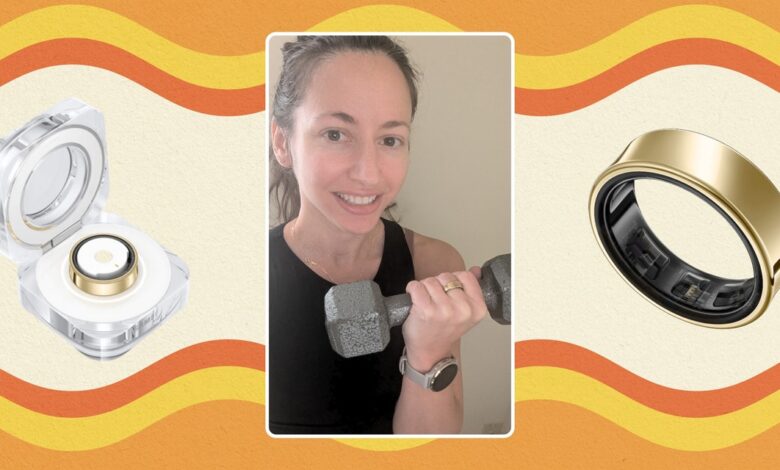Samsung’s New Smart Ring Is a Great Way to Get Health Metrics Without Wearing a Watch

If you are able to bring your phone with you, you’ll get more accurate data. Simply start a run on your Samsung Health app, do your workout, and end the session when you’re done. When I used my phone, my ring logged 5.04 miles compared to 5.17 for my Garmin.
The ring also uses one of its inside sensors to measure heart rate, and I noticed some variation with this too. During my 10-mile race, the ring clocked my average heart rate as 167 beats per minute, while my Garmin had it just one bpm higher at 168. But during an easy four-miler on the boardwalk, my ring listed my average as 118 bpm—a little too easy. My Garmin was more on the money, with an average of 144.
I looked a little closer at my data and noticed something interesting. During that four-miler, the breakdown of time spent in each heart rate zone seemed on the mark. If you look at the graph of the Galaxy’s readings below, you’ll see I spent the largest amount of time in my aerobic zone, between 129 and 146 bpm. Only a tiny smidge was logged in 110–128 (where the 118 average would be smack in the middle). You can see that matches up pretty well with my Garmin. Could it be that the ring’s data was accurate, but its math was off?
Heart rate zones on Galaxy Ring
Heart rate zones on Garmin Venu 3S smartwatch
(I noticed this issue with heart rate averages several times during my testing period. I asked a rep from Samsung for some intel, and they recommended making sure that the ring fits correctly—snugly, and without gaps—and that the “orientation indicator” line faces toward the palm for proper readings.)
Galaxy Ring health metrics
I think the ring shines in this space—there are a ton of metrics literally at your fingertips. My favorite was the Energy Score, a daily measurement of your physical and mental readiness. Your ring tallies this by analyzing your sleep, activity, and heart rate data from the day before.
When I exercised the prior day, stayed on track with my normal bedtime and wakeup time, and logged restorative sleep, my Energy Score would generally be in the “good” to “excellent” range, in the 80s. If I did a little too much the day before? It’d plummet, telling me that it was time for a day on the couch instead of one on the trails. For instance, the day after a three-hour marathon training run, my Energy Score dropped to a 51—the lowest I’d had to-date.
Click on any of the Energy Score factors in the Galaxy Wearable app and you’ll get a bunch more data: For instance, if you click on “sleep time average,” you’ll see a bar chart of your sleep length duration for the past seven days and how that compares to your average. Click on “bed/wake time consistency,” and you’ll see how your bed/wakeup times for that week compared to your normal.



